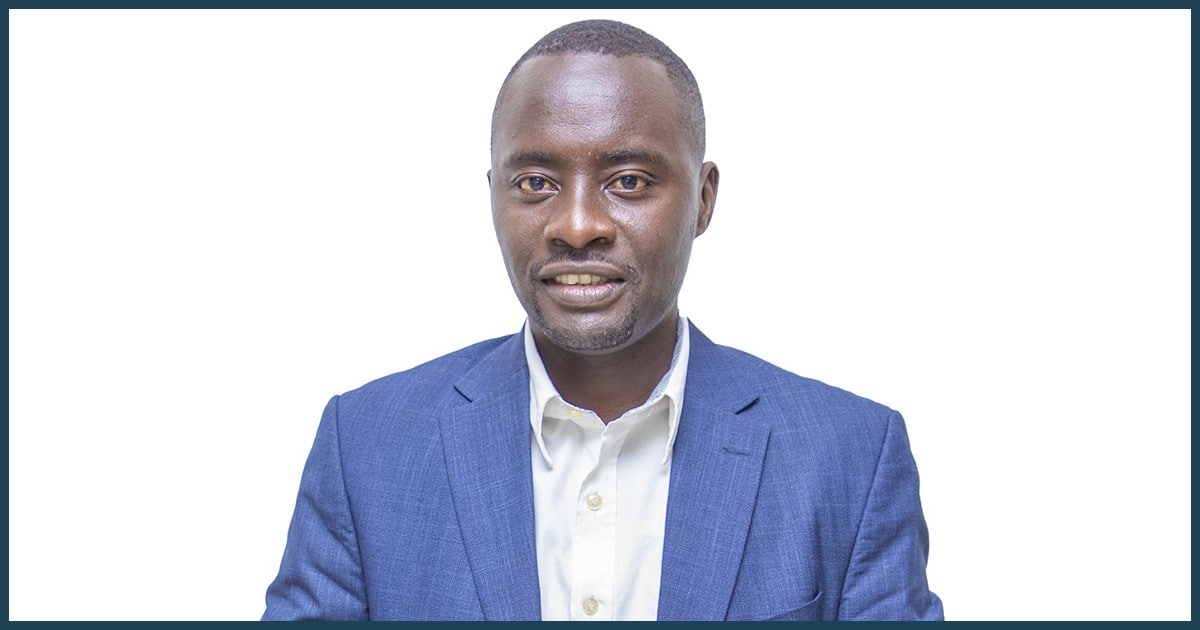On behalf of Sida, LIFE Academy has been implementing a Global Capacity Development Programme on Renewable Energy, targeting Ethiopia, Kenya, Mozambique, Rwanda, Tanzania, Uganda, Zambia, and Zimbabwe. The last programme was completed earlier this year out of the four programme cohorts between 2018-2024. We have interviewed four of the programme participants to learn more about the participant’s experience of the programme. In the following interview we hear from Peter Mwesiga from the Renewable Energy Programme (REP) 3.
Name: Peter Musinguzi Mwesiga
Country: Uganda
Position: Project Manager, Strategic Projects
Organisation: Umeme Limited
Office of the Chief Operations Officer
Operations Department
Programme: REP 3
For Peter Mwesiga, joining the REP programme was life changing in many ways. He explains that the concept of sustainability, climate change and carbonation were made very vivid for him during the programme and it also expanded what he understood energy to be. A personal affect after the programme is that Peter has changed his career path, now only focusing the rest of his life and the projects he chooses on climate, renewable energy and sustainability.
“The classroom sessions we had, that presentation around climate change, the UN mock-up session that we did, I think changed my view, my purpose in life, just that one session (…). Changed the way I look at the world, it changed what I am chasing in life. So, that was quite impactful for me.”
– Says Peter Mwesiga

The determination of making a change is clearly showed in the Change Project work that Peter did along with the rest of the Uganda Country Team. The Change Project was about cooking with electricity using electric pressure cookers in Uganda. Peter explains that during the programme they had a smaller scope, focusing on creating awareness via a survey. However, they continued to implement a bigger programme, distributing a minimum of 1 500 electric pressure cookers and have been working with that since. They also put together a project review committee with different players in the sector, including for example the Ministry of Energy, Umeme, UNREEEA and GiZ. They are also reviewing a second order of 2 700 electric pressure cookers and awareness has been created via cooking demonstrations in different Umeme branches.
Peter also explains that while they were four people on the Change Project in the programme, it is more than a project for just the four institutions that are involved. They have appointed 32 project champions, one in every branch where Umeme operates. The champions provide support to customers and staff on how they will be able to acquire the electric pressure cookers. Peter explains that the project has been taken on by management at Umeme, now being a strategic project that they report on boarder level and is something that will be seen in future Umeme annual reports because of the work that has been happening. Peter describes the specific guidance during the programme, that the Change Project should become company projects and that is what they successfully did, involving stakeholders and implementing knowledge in the organisations.
“Managing Change Project’s upwards, I think for example management of the reporting up to the board has been supported. As well as putting together reports that can help others understand where we are going as far as the Change Project is concerned. The way I operate has not been the same since we completed this project.”
– Says Peter
Peter also gives another example of a result of him sharing knowledge from the programme. He looks back at a presentation from one expert from Namibia giving a presentation on Green Hydrogen. Peter thought that she gave a very good explanation on how to initiate and manage an international project in his country, coming in as for example an expert or investor.
“Made me look at the whole spectrum on how to set up a country wide programme. That has proved very influential for me. I had to share it with my boss on how, for example to set up and manage a fund, on how to set up a programme in our country.”
– Says Peter
Peter concludes the interview saying that several lives have been touched by this programme and as participants the best representation that they can do is to make sure that effort did not go down the drain, that they can create an impact.
“We expanded the programme as we started the project, so that a lot more people can be touched, so that impact of work that was done can be felt in the lives of our people.”
– Says Peter
